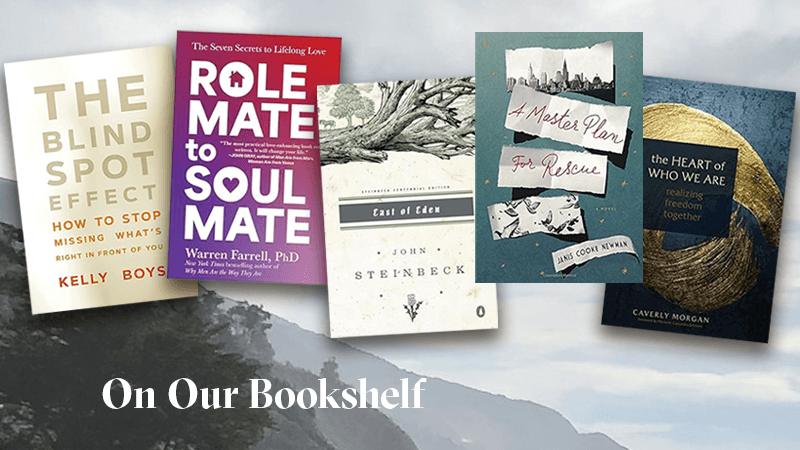
Books have always been companions on the human journey. They are mirrors that reflect who we are, maps that point to who we might become. In that spirit, these works by Esalen faculty weave together the intimate and the archetypal, the personal and the collective. They guide us to see what’s been hidden, revisit old stories with new eyes, and imagine love, belonging, and transformation in fresh ways. Each one is a doorway into deeper inquiry, a reminder that the search for meaning happens not just on the cliffs of Big Sur, but also in the quiet turning of a page.
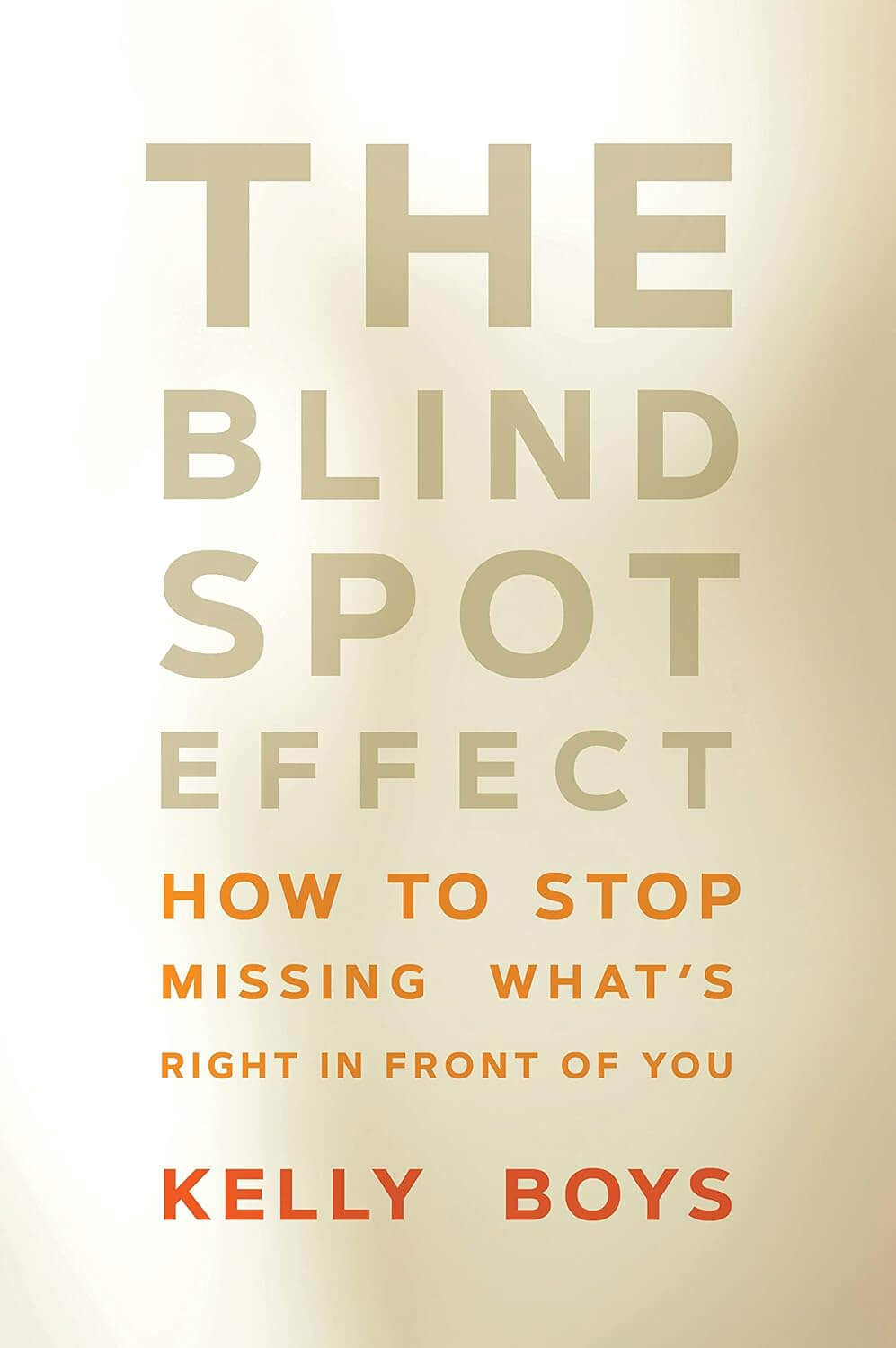
by Kelly Boys
Ever wondered why you can see it all so clearly when it comes to friends and family but never your own? Those ingrained beliefs and unconscious impulses that “create habit building patterns in relationship to others and ourselves” — the ones that harm us, hold us back, and create conflict that we can never, ever truly work on because, as infuriatingly simple as it sounds, we cannot see them! Informed by neuroscience, psychology, and meditation research, this guide by Kelly Boys, who helped launch Google’s Search Inside Yourself program and has delivered mindfulness/resilience initiatives for and at the United Nations and San Quentin State Prison, is path to your “home base”: that state of honesty from which everything, including what we miss and how we miss it, is finally visible. Called “a deeply helpful look at this underexplored topic,” by Sharon Salzberg and “a fresh and illuminating take on how to step out of lifelong patterns that keep snagging us . . . highly recommended!” by Tara Brach.
Kelly Boys will lead The Art of Non-Sleep Deep Rest: A Rejuvenating Yoga Nidra Retreat on October 3–5, 2025.
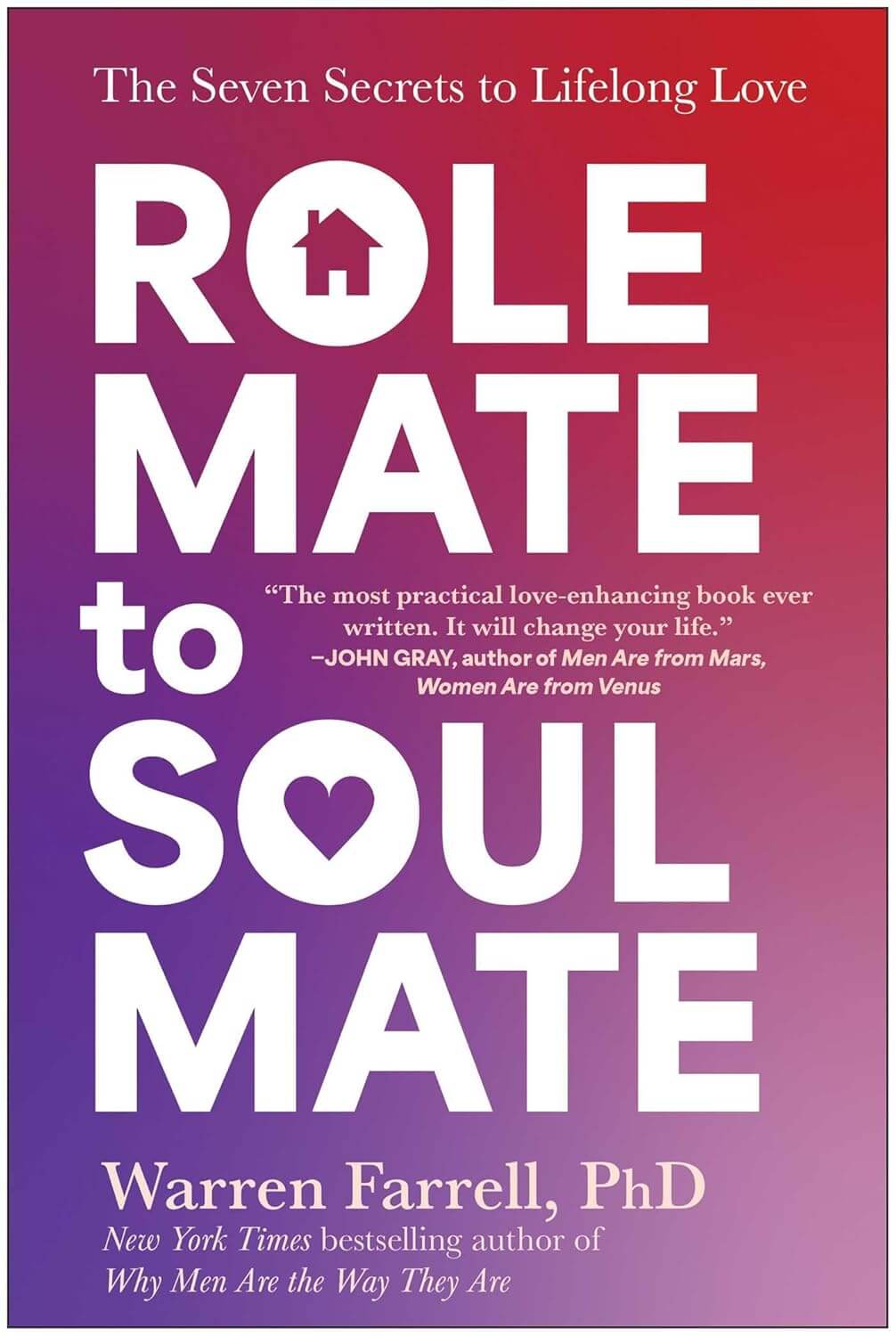
by Warren Farrell
Informed by the three decades he has spent teaching communication skills, the prolific Warren Farrell (Why Men Are the Way They Are, The Boy Crisis, Father and Child Reunion) identifies the barriers to sustaining love, along with the biological reasons behind conflict. “Over time, couples tell me that what once provoked anxiety becomes a cherished opportunity for intimacy,” writes Farrell. His most recent book grew out of this popular relationship workshop, which he will lead again on campus October 10–13 to guide participants in the six methods of sustaining a “conflict free zone,” the “Eleven Wisdoms” as a foundation for deepening love, the four “depleters of love,” and much more. Says Farrell, “There are few things that touch my heart more than hearing from a couple that has already filed for divorce that they will withdraw the filing tomorrow. I relish the feeling of overwhelming love in the room after a workshop.” (If you’re unable to attend in person, we strongly suggest picking up this written version as the very next-best thing.)
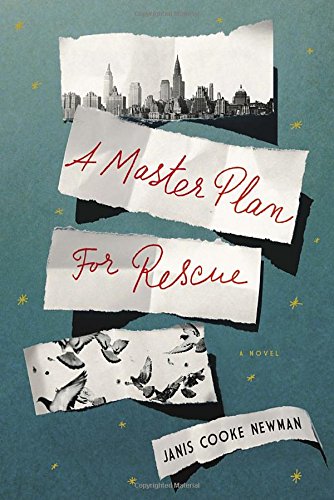
by Janis Cooke Newman
This historical novel by Janis Cooke Newman (Mary: Mrs. A. Lincoln) — partly inspired by the Jewish refugee ship the MS St. Louis, which was tragically denied entry in both Cuba and the US and forced to return to Germany — begins with a terrifying announcement from a silverstone radio: the Japanese have attacked Pearl Harbour. In that moment, the world goes blurry for almost-twelve-year-old Jack Quinlan (“small for my age, black-haired like my mother, wanting no more than for the life that I have to keep going as it is”) and his happy life soon unravels. A Code-O-Graph, a children’s decoder badge created by the superhero radio programs, feels like the key to finding the father who “seemingly disappears” after a terrible accident. With insight and imagination, the boy, much like a superhero, develops new ways to “see” — to detect the “hum that exists beneath a person’s words.” The narration is passed to a heartbroken Jewish refugee as an extraordinary plan to save a group of children unfolds. Newman’s fantastical, moving plots (surprisingly similar to some real-life history) are only matched by her poetic language. A review from the San Francisco Chronicle sums it up best: “Unforgettable… balances beautifully on the thin line between wishful thinking and reason, between the imagination and the intellect….The cumulative effect is wondrous. Like magic.”
Janis Cooke Newman, who is also the author of The Russian Word for Snow, a memoir about adopting her son from Russia, will lead Write Your Deepest Story: Memoir, Autobiography, and the Personal Essay on October 13–17.
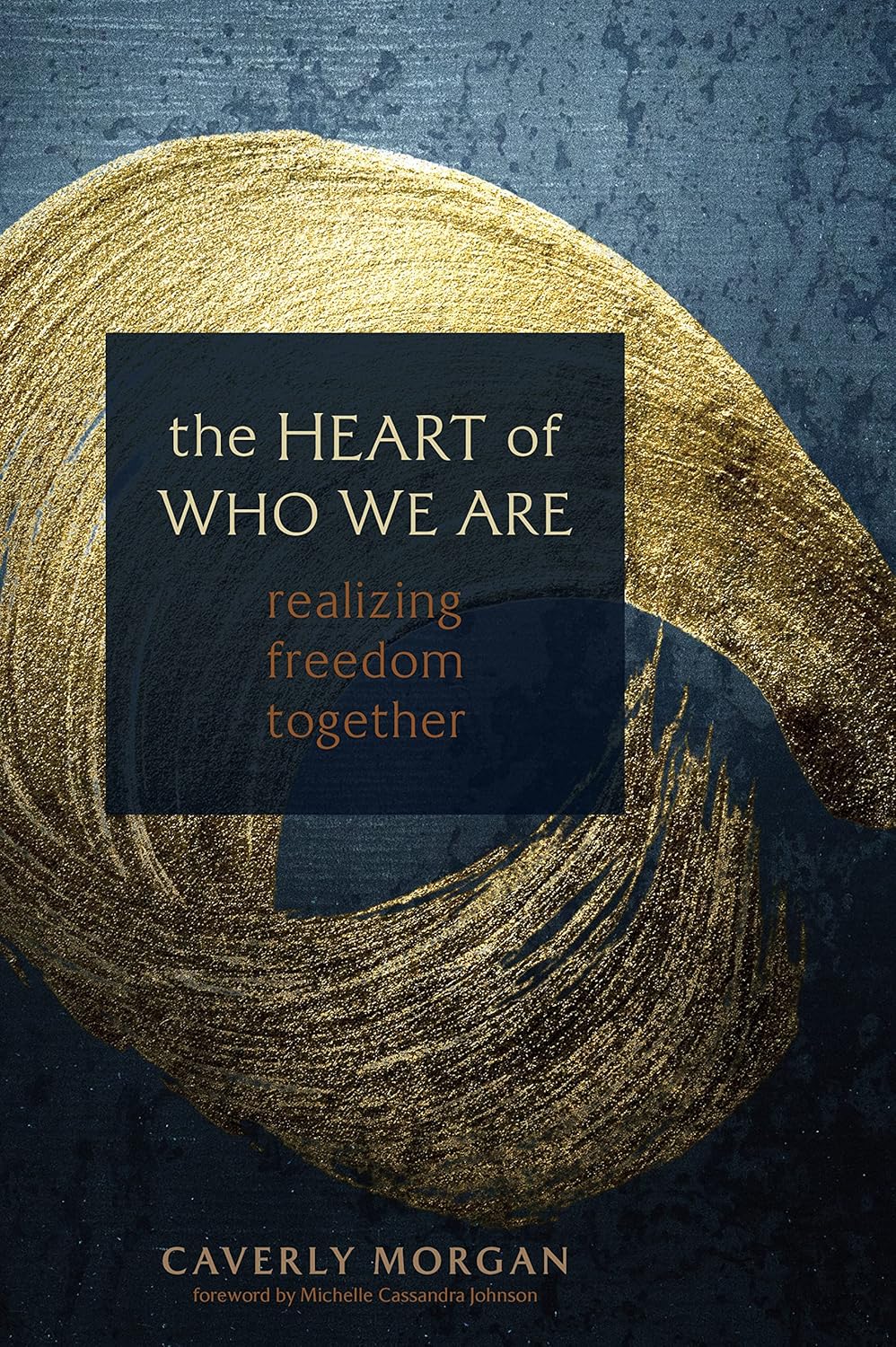
by Caverly Morgan
“We all long to be happy. We all long to feel at ease, to be at peace, and to know that we’re okay and we belong. When it feels like the world is on fire, when divisiveness is commonplace, it can seem harder than ever to access such belonging — both personally and collectively,” writes Caverly Morgan. When she reentered society after living as a Zen monk for eight years, the spiritual teacher, speaker, and author wondered how individual spiritual practices can truly make a difference as we face enormous collective problems. In this book, she explores how meditation, mindfulness, and contemplative technologies can — “and must” — be applied collectively. In the words of Esalen’s Justin Michael Williams, “Read this book. You, and the world, will be better for it.” Caverly’s workshop, Return to Belonging: The Heart of Who We Are, which will also explore both personal and collective transformation, will take place on October 20–24. For more, check out Caverly’s thoughts on relational dharma and her thoughtful appearance on the Voices of Esalen podcast, in which she discusses how personal ego and collective ego shape our culture, relationships, and our sense of separation.
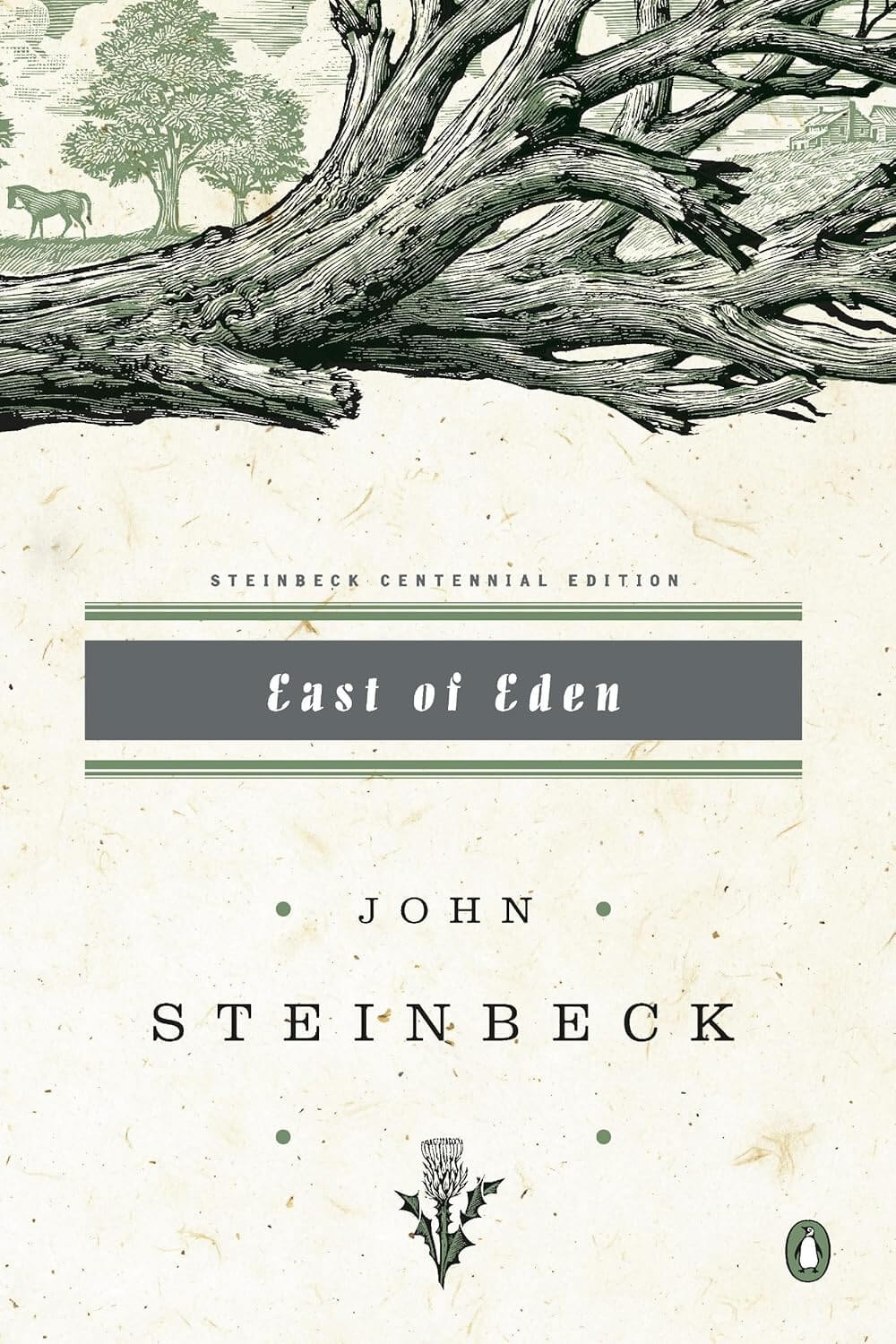
by John Steinbeck
Though it may shock some, the fictional brothers in Steinbeck’s American classic were reportedly based on Esalen cofounder Michael Murphy (who just celebrated his 95th birthday!) and his screenwriter and author sibling. From a March 1995 New York Times profile on Michael: “His paternal grandfather [Dr. Henry Murphy] had delivered John Steinbeck, who is said to have modeled the brothers in East of Eden on Mr. Murphy and his brother, Dennis, now a writer.” The epic family saga, primarily set in the Salinas Valley (where both the author and the Murphy brothers grew up), is a meditation on good and evil, free will, and ancestral legacy, with generations of sibling rivalry echoing the Cain and Abel story. A new miniseries starring Florence Pugh and adapted by Zoe Kazan (whose grandfather Elia directed the iconic 1955 James Dean version) is expected to be hit Netflix early next year, so if you haven’t enjoyed Steinbeck’s magnum opus since high school, now is the time to refresh your memory!

“Remembering to be as self compassionate as I can and praying to the divine that we're all a part of.”
–Aaron
“Prayer, reading, meditation, walking.”
–Karen
“Erratically — which is an ongoing stream of practice to find peace.”
–Charles
“Try on a daily basis to be kind to myself and to realize that making mistakes is a part of the human condition. Learning from our mistakes is a journey. But it starts with compassion and caring. First for oneself.”
–Steve
“Physically: aerobic exercise, volleyball, ice hockey, cycling, sailing. Emotionally: unfortunately I have to work to ‘not care’ about people or situations which may end painfully. Along the lines of ‘attachment is the source of suffering’, so best to avoid it or limit its scope. Sad though because it could also be the source of great joy. Is it worth the risk?“
–Rainer


“It's time for my heart to be nurtured on one level yet contained on another. To go easy on me and to allow my feelings to be validated, not judged harshly. On the other hand, to let the heart rule with equanimity and not lead the mind and body around like a master.”
–Suzanne
“I spend time thinking of everything I am grateful for, and I try to develop my ability to express compassion for myself and others without reservation. I take time to do the things I need to do to keep myself healthy and happy. This includes taking experiential workshops, fostering relationships, and participating within groups which have a similar interest to become a more compassionate and fulfilled being.“
–Peter


“Self-forgiveness for my own judgments. And oh yeah, coming to Esalen.”
–David B.
“Hmm, this is a tough one! I guess I take care of my heart through fostering relationships with people I feel connected to. Spending quality time with them (whether we're on the phone, through messages/letters, on Zoom, or in-person). Being there for them, listening to them, sharing what's going on with me, my struggles and my successes... like we do in the Esalen weekly Friends of Esalen Zoom sessions!”
–Lori

“I remind myself in many ways of the fact that " Love is all there is!" LOVE is the prize and this one precious life is the stage we get to learn our lessons. I get out into nature, hike, camp, river kayak, fly fish, garden, I create, I dance (not enough!), and I remain grateful for each day, each breath, each moment. Being in the moment, awake, and remembering the gift of life and my feeling of gratitude for all of creation.”
–Steven
“My physical heart by limiting stress and eating a heart-healthy diet. My emotional heart by staying in love with the world and by knowing that all disappointment and loss will pass.“
–David Z.
Today, September 29, is World Heart Day. Strike up a conversation with your own heart and as you feel comfortable, encourage others to do the same. As part of our own transformations and self-care, we sometimes ask for others to illuminate and enliven our hearts or speak our love language.
What if we could do this for ourselves too, even if just for today… or to start a heart practice, forever?

Books have always been companions on the human journey. They are mirrors that reflect who we are, maps that point to who we might become. In that spirit, these works by Esalen faculty weave together the intimate and the archetypal, the personal and the collective. They guide us to see what’s been hidden, revisit old stories with new eyes, and imagine love, belonging, and transformation in fresh ways. Each one is a doorway into deeper inquiry, a reminder that the search for meaning happens not just on the cliffs of Big Sur, but also in the quiet turning of a page.

Ever wondered why you can see it all so clearly when it comes to friends and family but never your own? Those ingrained beliefs and unconscious impulses that “create habit building patterns in relationship to others and ourselves” — the ones that harm us, hold us back, and create conflict that we can never, ever truly work on because, as infuriatingly simple as it sounds, we cannot see them! Informed by neuroscience, psychology, and meditation research, this guide by Kelly Boys, who helped launch Google’s Search Inside Yourself program and has delivered mindfulness/resilience initiatives for and at the United Nations and San Quentin State Prison, is path to your “home base”: that state of honesty from which everything, including what we miss and how we miss it, is finally visible. Called “a deeply helpful look at this underexplored topic,” by Sharon Salzberg and “a fresh and illuminating take on how to step out of lifelong patterns that keep snagging us . . . highly recommended!” by Tara Brach.
Kelly Boys will lead The Art of Non-Sleep Deep Rest: A Rejuvenating Yoga Nidra Retreat on October 3–5, 2025.

Informed by the three decades he has spent teaching communication skills, the prolific Warren Farrell (Why Men Are the Way They Are, The Boy Crisis, Father and Child Reunion) identifies the barriers to sustaining love, along with the biological reasons behind conflict. “Over time, couples tell me that what once provoked anxiety becomes a cherished opportunity for intimacy,” writes Farrell. His most recent book grew out of this popular relationship workshop, which he will lead again on campus October 10–13 to guide participants in the six methods of sustaining a “conflict free zone,” the “Eleven Wisdoms” as a foundation for deepening love, the four “depleters of love,” and much more. Says Farrell, “There are few things that touch my heart more than hearing from a couple that has already filed for divorce that they will withdraw the filing tomorrow. I relish the feeling of overwhelming love in the room after a workshop.” (If you’re unable to attend in person, we strongly suggest picking up this written version as the very next-best thing.)

This historical novel by Janis Cooke Newman (Mary: Mrs. A. Lincoln) — partly inspired by the Jewish refugee ship the MS St. Louis, which was tragically denied entry in both Cuba and the US and forced to return to Germany — begins with a terrifying announcement from a silverstone radio: the Japanese have attacked Pearl Harbour. In that moment, the world goes blurry for almost-twelve-year-old Jack Quinlan (“small for my age, black-haired like my mother, wanting no more than for the life that I have to keep going as it is”) and his happy life soon unravels. A Code-O-Graph, a children’s decoder badge created by the superhero radio programs, feels like the key to finding the father who “seemingly disappears” after a terrible accident. With insight and imagination, the boy, much like a superhero, develops new ways to “see” — to detect the “hum that exists beneath a person’s words.” The narration is passed to a heartbroken Jewish refugee as an extraordinary plan to save a group of children unfolds. Newman’s fantastical, moving plots (surprisingly similar to some real-life history) are only matched by her poetic language. A review from the San Francisco Chronicle sums it up best: “Unforgettable… balances beautifully on the thin line between wishful thinking and reason, between the imagination and the intellect….The cumulative effect is wondrous. Like magic.”
Janis Cooke Newman, who is also the author of The Russian Word for Snow, a memoir about adopting her son from Russia, will lead Write Your Deepest Story: Memoir, Autobiography, and the Personal Essay on October 13–17.

“We all long to be happy. We all long to feel at ease, to be at peace, and to know that we’re okay and we belong. When it feels like the world is on fire, when divisiveness is commonplace, it can seem harder than ever to access such belonging — both personally and collectively,” writes Caverly Morgan. When she reentered society after living as a Zen monk for eight years, the spiritual teacher, speaker, and author wondered how individual spiritual practices can truly make a difference as we face enormous collective problems. In this book, she explores how meditation, mindfulness, and contemplative technologies can — “and must” — be applied collectively. In the words of Esalen’s Justin Michael Williams, “Read this book. You, and the world, will be better for it.” Caverly’s workshop, Return to Belonging: The Heart of Who We Are, which will also explore both personal and collective transformation, will take place on October 20–24. For more, check out Caverly’s thoughts on relational dharma and her thoughtful appearance on the Voices of Esalen podcast, in which she discusses how personal ego and collective ego shape our culture, relationships, and our sense of separation.

Though it may shock some, the fictional brothers in Steinbeck’s American classic were reportedly based on Esalen cofounder Michael Murphy (who just celebrated his 95th birthday!) and his screenwriter and author sibling. From a March 1995 New York Times profile on Michael: “His paternal grandfather [Dr. Henry Murphy] had delivered John Steinbeck, who is said to have modeled the brothers in East of Eden on Mr. Murphy and his brother, Dennis, now a writer.” The epic family saga, primarily set in the Salinas Valley (where both the author and the Murphy brothers grew up), is a meditation on good and evil, free will, and ancestral legacy, with generations of sibling rivalry echoing the Cain and Abel story. A new miniseries starring Florence Pugh and adapted by Zoe Kazan (whose grandfather Elia directed the iconic 1955 James Dean version) is expected to be hit Netflix early next year, so if you haven’t enjoyed Steinbeck’s magnum opus since high school, now is the time to refresh your memory!

“Remembering to be as self compassionate as I can and praying to the divine that we're all a part of.”
–Aaron
“Prayer, reading, meditation, walking.”
–Karen
“Erratically — which is an ongoing stream of practice to find peace.”
–Charles
“Try on a daily basis to be kind to myself and to realize that making mistakes is a part of the human condition. Learning from our mistakes is a journey. But it starts with compassion and caring. First for oneself.”
–Steve
“Physically: aerobic exercise, volleyball, ice hockey, cycling, sailing. Emotionally: unfortunately I have to work to ‘not care’ about people or situations which may end painfully. Along the lines of ‘attachment is the source of suffering’, so best to avoid it or limit its scope. Sad though because it could also be the source of great joy. Is it worth the risk?“
–Rainer


“It's time for my heart to be nurtured on one level yet contained on another. To go easy on me and to allow my feelings to be validated, not judged harshly. On the other hand, to let the heart rule with equanimity and not lead the mind and body around like a master.”
–Suzanne
“I spend time thinking of everything I am grateful for, and I try to develop my ability to express compassion for myself and others without reservation. I take time to do the things I need to do to keep myself healthy and happy. This includes taking experiential workshops, fostering relationships, and participating within groups which have a similar interest to become a more compassionate and fulfilled being.“
–Peter


“Self-forgiveness for my own judgments. And oh yeah, coming to Esalen.”
–David B.
“Hmm, this is a tough one! I guess I take care of my heart through fostering relationships with people I feel connected to. Spending quality time with them (whether we're on the phone, through messages/letters, on Zoom, or in-person). Being there for them, listening to them, sharing what's going on with me, my struggles and my successes... like we do in the Esalen weekly Friends of Esalen Zoom sessions!”
–Lori

“I remind myself in many ways of the fact that " Love is all there is!" LOVE is the prize and this one precious life is the stage we get to learn our lessons. I get out into nature, hike, camp, river kayak, fly fish, garden, I create, I dance (not enough!), and I remain grateful for each day, each breath, each moment. Being in the moment, awake, and remembering the gift of life and my feeling of gratitude for all of creation.”
–Steven
“My physical heart by limiting stress and eating a heart-healthy diet. My emotional heart by staying in love with the world and by knowing that all disappointment and loss will pass.“
–David Z.
Today, September 29, is World Heart Day. Strike up a conversation with your own heart and as you feel comfortable, encourage others to do the same. As part of our own transformations and self-care, we sometimes ask for others to illuminate and enliven our hearts or speak our love language.
What if we could do this for ourselves too, even if just for today… or to start a heart practice, forever?

Books have always been companions on the human journey. They are mirrors that reflect who we are, maps that point to who we might become. In that spirit, these works by Esalen faculty weave together the intimate and the archetypal, the personal and the collective. They guide us to see what’s been hidden, revisit old stories with new eyes, and imagine love, belonging, and transformation in fresh ways. Each one is a doorway into deeper inquiry, a reminder that the search for meaning happens not just on the cliffs of Big Sur, but also in the quiet turning of a page.

“Remembering to be as self compassionate as I can and praying to the divine that we're all a part of.”
–Aaron
“Prayer, reading, meditation, walking.”
–Karen
“Erratically — which is an ongoing stream of practice to find peace.”
–Charles
“Try on a daily basis to be kind to myself and to realize that making mistakes is a part of the human condition. Learning from our mistakes is a journey. But it starts with compassion and caring. First for oneself.”
–Steve
“Physically: aerobic exercise, volleyball, ice hockey, cycling, sailing. Emotionally: unfortunately I have to work to ‘not care’ about people or situations which may end painfully. Along the lines of ‘attachment is the source of suffering’, so best to avoid it or limit its scope. Sad though because it could also be the source of great joy. Is it worth the risk?“
–Rainer


“It's time for my heart to be nurtured on one level yet contained on another. To go easy on me and to allow my feelings to be validated, not judged harshly. On the other hand, to let the heart rule with equanimity and not lead the mind and body around like a master.”
–Suzanne
“I spend time thinking of everything I am grateful for, and I try to develop my ability to express compassion for myself and others without reservation. I take time to do the things I need to do to keep myself healthy and happy. This includes taking experiential workshops, fostering relationships, and participating within groups which have a similar interest to become a more compassionate and fulfilled being.“
–Peter


“Self-forgiveness for my own judgments. And oh yeah, coming to Esalen.”
–David B.
“Hmm, this is a tough one! I guess I take care of my heart through fostering relationships with people I feel connected to. Spending quality time with them (whether we're on the phone, through messages/letters, on Zoom, or in-person). Being there for them, listening to them, sharing what's going on with me, my struggles and my successes... like we do in the Esalen weekly Friends of Esalen Zoom sessions!”
–Lori

“I remind myself in many ways of the fact that " Love is all there is!" LOVE is the prize and this one precious life is the stage we get to learn our lessons. I get out into nature, hike, camp, river kayak, fly fish, garden, I create, I dance (not enough!), and I remain grateful for each day, each breath, each moment. Being in the moment, awake, and remembering the gift of life and my feeling of gratitude for all of creation.”
–Steven
“My physical heart by limiting stress and eating a heart-healthy diet. My emotional heart by staying in love with the world and by knowing that all disappointment and loss will pass.“
–David Z.
Today, September 29, is World Heart Day. Strike up a conversation with your own heart and as you feel comfortable, encourage others to do the same. As part of our own transformations and self-care, we sometimes ask for others to illuminate and enliven our hearts or speak our love language.
What if we could do this for ourselves too, even if just for today… or to start a heart practice, forever?